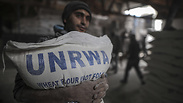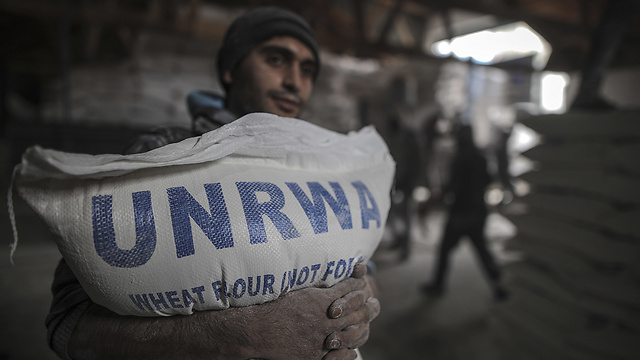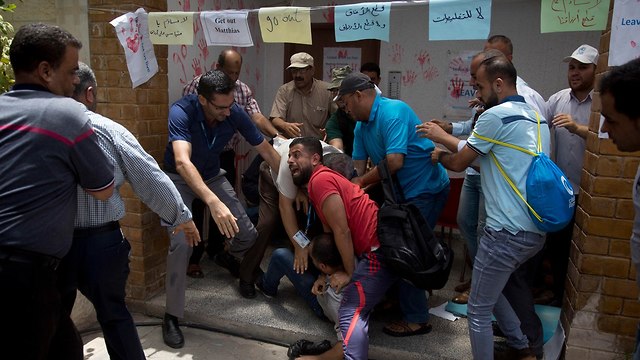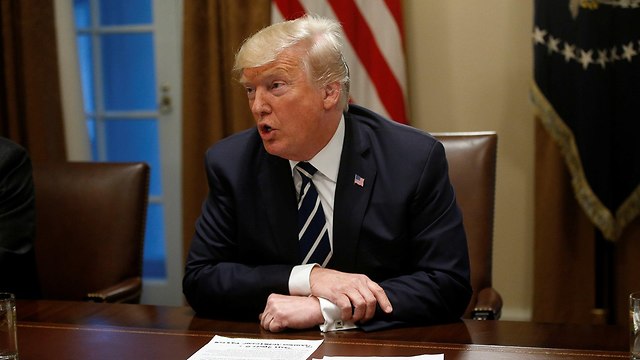
In total, 154 employees in the West Bank and 113 in the Gaza Strip will be let go, UNRWA spokesman Chris Gunness said in a statement.
More than 500 other full-time staff will be offered part-time contracts, the statement added.
The job cuts were the first since the US announced it would only provide the agency with $60 million this year, down from $360 million the previous year.
Gunness's statement said the US cut represented an "existential threat" to UNRWA, which had been trying to raise the money from other donors.
Amal al-Batsh, deputy head of UNRWA's staff union, condemned the cuts.
"The decisions are unfair and will adversely affect employees and their families," she told AFP.
Hundreds of people rallied outside UNRWA's headquarters in Gaza City to protest against the decision to axe jobs, as the union called for a sit-in.
One man tried to set himself on fire but fellow protesters rushed to help him and put out the flames, an AFP journalist at the scene said.
The UNRWA staff union also called for a general strike by employees to be held on Thursday in Gaza.
The agency provides services to more than three million Palestinian refugees across the Middle East and employs more than 20,000 people, the vast majority Palestinians.
Israel complains that UNRWA grants Palestinian refugees special status by counting descendants of Palestinians who were either forced to leave or fled during the 1948 War of Independence, thereby perpetuating the conflict and intensifying the refugee problem.
Gunness's statement said UNRWA was seeking to "protect core services, including education, health and relief," as well as ensure the schools they run in the territories, Lebanon, Jordan and elsewhere open on time after the summer holidays.
"The decision of the US to cut $300 million in funding to UNRWA this year has been described by our commissioner general as an existential threat to UNRWA," it said.
"As we continue to pursue every avenue of support to overcome a severe financial crisis, UNRWA, its dedicated staff and the refugees have only one option: to face up to this situation together and preserve the most important work we do."
Trump threats
In January, US President Donald Trump linked the cutting of Palestinian aid to the decision by president Mahmoud Abbas to refuse to talk with his administration.
The Palestinian leadership froze ties with the White House after it recognized Jerusalem as Israel's capital and accuses Trump's administration of blatant bias in favour of Israel.
"We pay the Palestinians HUNDRED OF MILLIONS OF DOLLARS a year and get no appreciation or respect," Trump tweeted on January 2, shortly before the funding freeze was announced.
"With the Palestinians no longer willing to talk peace, why should we make any of these massive future payments to them?"
UNRWA was set up after the 1948 war surrounding the creation of Israel, which saw more than 700,000 Palestinians expelled or flee.
UNRWA leadership and Palestinian officials say its presence is necessary until a permanent solution can be found for the refugees.
Israel has also complained that the UNRWA-funded facilities are exploited by terrorists.
Last year, for exampled, UNRWA discovered a Hamas attack tunnel underneath one of its schools in Gaza.



















